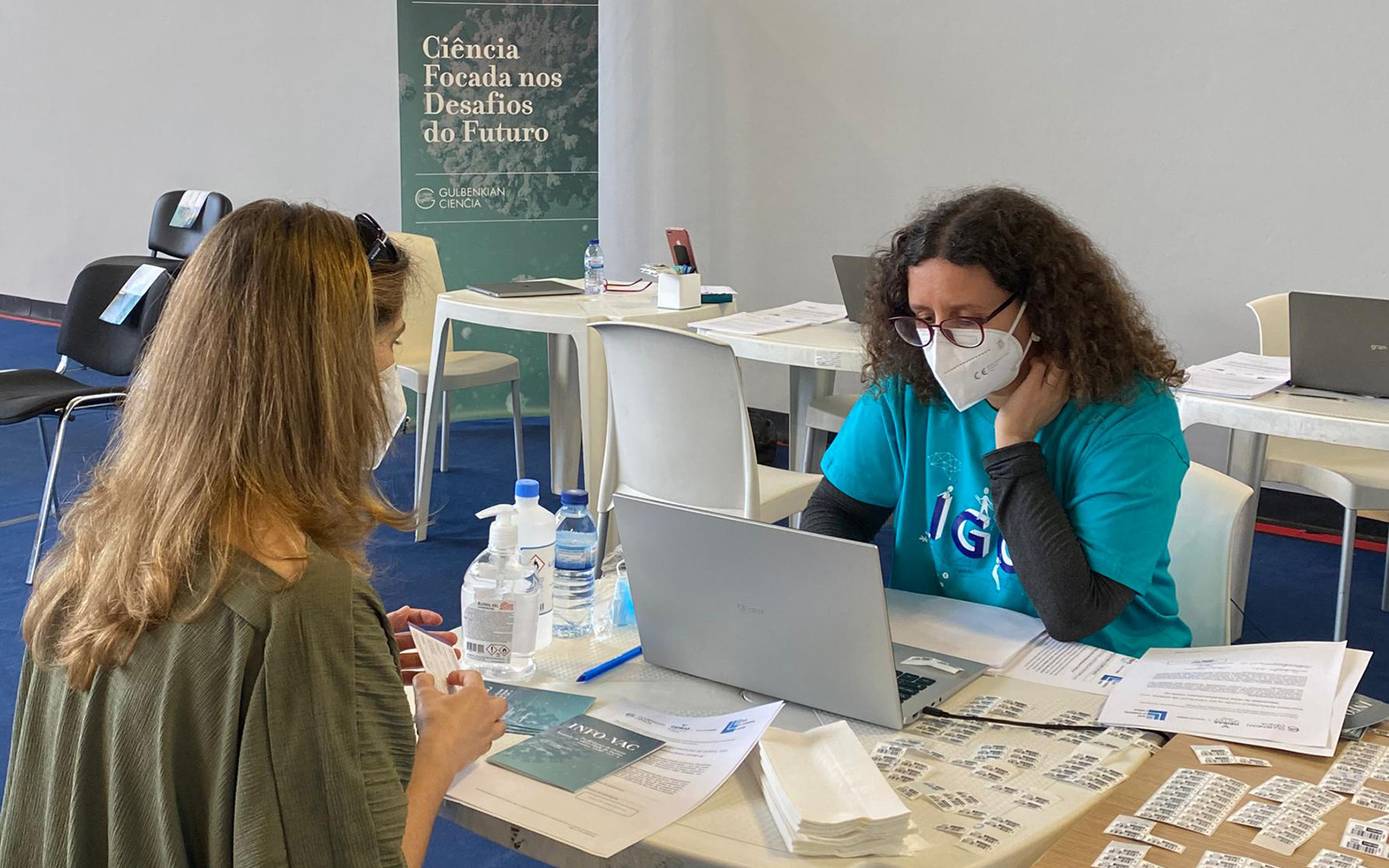INFO-VAC: SARS-CoV-2 vaccine surveillance screening

According to data from the analysis of antibody levels, of the 1905 people vaccinated and monitored in the study, those who followed a mixed vaccination scheme, with the first dose of Oxford/AstraZeneca and the second dose of Pfizer/BioNTech, generated a greater number of antibodies compared to the two doses of Oxford/AstraZeneca vaccine. The data also revealed that the levels of antibodies, after the two doses of the Pfizer/BioNTech vaccine, were higher than those generated with other vaccination schemes.
A longitudinal study follows health professionals from the Centro Hospitalar Lisboa Ocidental EPE, since December 2020, and education professionals from Oeiras Municipality, since April 2021, with the support of the Agrupamento de Centros de Saúde de Lisboa Ocidental e Oeiras and the City Council of Oeiras.
The total number of participants, 1905, followed study by Instituto Gulbenkian de Ciência in the INFO-VAC study, includes 384 education professionals and 1521 healthcare professionals. Among these, 258 followed a mixed vaccination scheme, consisting of a first dose of Oxford/AstraZeneca followed by a second dose of Pfizer/BioNTech. The study includes two phases: the induction phase and the duration phase. In the induction phase, the project seeks to assess the effectiveness of each vaccination scheme in inducing an immune response and its amplitude. In the second phase, the study intends to measure the duration/longevity of the response after the complete vaccination scheme.
The data obtained in the first stage revealed:
In the results of the second phase, it was found that 6 months after the start of vaccination the percentage of participants who presented antibodies were: 99% of those in a mixed vaccination scheme and 82% after two doses of Oxford/AstraZeneca vaccine, while in the Pfizer scheme /BioNTech it reached 98%.
According to Lígia Gonçalves, responsible for implementing the study at the Instituto Gulbenkian de Ciência, “the results showed that the vaccination scheme combining Oxford/AstraZeneca with Pfizer/BioNTech works well. Furthermore, these results are promising for the current mRNA vaccine booster dose in individuals previously vaccinated with another type of vaccine.”
According to Jocelyne Demengeot, immunologist and study coordinator, “antibodies are indicators that the immune system is being recruited and that there is an immunological memory. One of the questions still to be answered is whether the levels of antibodies at a given time serve as an indicator of the duration of protection provided by the vaccine”. The study in teachers, school workers and healthcare professionals “is particularly informative as they correspond to representative groups of the adult population between 19 and 70 years old” concludes Jocelyne.
João Faro Viana, responsible for the study at Centro Hospitalar Lisboa Ocidental, EPE, highlights the importance of these effectiveness studies in the field, considering that the trials which validate the usefulness and safety of vaccines are always carried out in highly controlled conditions and population samples and that there are other factors that potentially modulate the response in real life, such as new variants or social behaviour.
Conducting screenings is an essential tool to ensure the monitoring of the vaccine response’s evolution and to obtain data to support decisions on revaccination and vaccines to be used. Serological screenings are being conducted over time and are included in a program to assess the effectiveness of Covid-19 vaccines response that Instituto Gulbenkian de Ciência has been carrying out since December 2020. The screening program in healthcare professionals has been led in close partnership with Centro Hospitalar Lisboa Ocidental, EPE, since vaccination began in Portugal. In addition to this group, the project follows education professionals, elderly nursing homes residents and nursing home workers, and people with specific diseases, to whom the different vaccines were administered, in a total of 3000 people. The INFOVAC studies are coordinated by the IGC laboratories of Carlos Penha Gonçalves and Jocelyne Demengeot.
